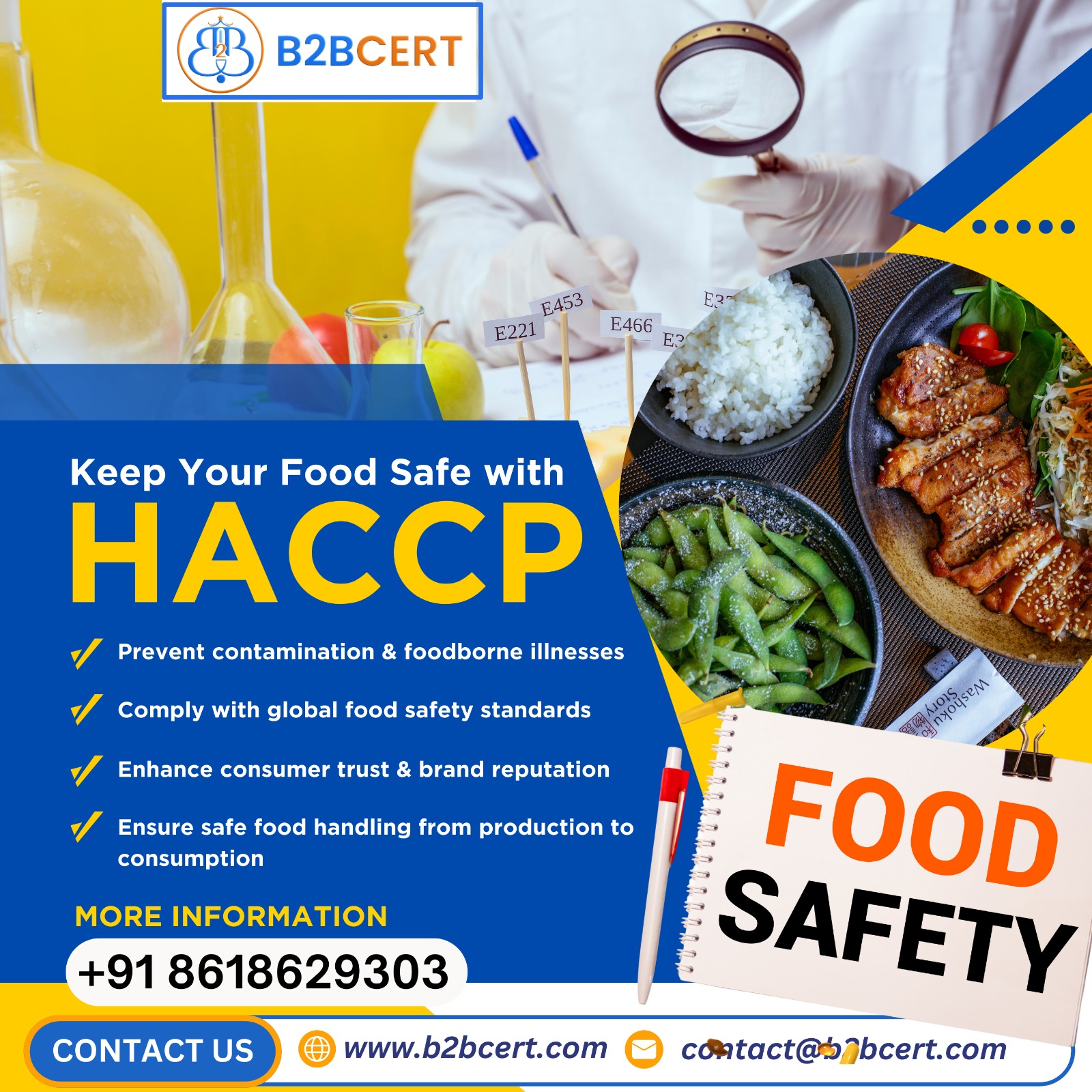In Singapore’s fast-paced and highly regulated food industry, ensuring food safety is not just a legal requirement—it’s a business imperative. Consumers today are more conscious than ever about the quality and safety of what they consume. This is where HACCP Certification in Singapore plays a vital role. HACCP, which stands for Hazard Analysis and Critical Control Points, is a globally recognized system that helps organizations identify, assess, and control food safety hazards.
Whether you’re a food manufacturer, processor, distributor, or caterer, achieving HACCP certification demonstrates your commitment to delivering safe, high-quality food products while meeting both local and international food safety standards.
What is HACCP?
HACCP is a preventive approach to food safety management that focuses on identifying potential hazards in the food production process—from raw material sourcing to final product delivery—and implementing control measures to eliminate or reduce those risks to acceptable levels.
Rather than relying solely on end-product testing, HACCP is proactive. It emphasizes continuous monitoring and verification at Critical Control Points (CCPs) throughout the supply chain. This systematic approach makes it one of the most effective and widely adopted food safety systems in the world.
Importance of HACCP Certification in Singapore
Singapore is known for its high standards in food safety and public health. The Singapore Food Agency (SFA) mandates food establishments to comply with strict hygiene and safety protocols. While not always compulsory, HACCP certification is increasingly being adopted voluntarily by companies that want to stand out in the competitive food industry.
Here are some key reasons why HACCP certification is important:
1. Compliance with Regulatory Requirements
While SFA regulations are stringent, HACCP certification ensures you meet or exceed those requirements. It also prepares your business for regular inspections, audits, and potential product recalls with a robust safety framework in place.
2. Builds Consumer Trust and Brand Credibility
Food safety concerns can quickly damage a brand’s reputation. With HACCP certification, consumers are assured that your food products are handled in a safe, hygienic, and responsible manner, increasing customer confidence and brand loyalty.
3. Access to Global Markets
HACCP is recognized by major international food safety authorities such as the Codex Alimentarius Commission, the FDA, and the European Union. For Singapore-based food businesses looking to export, HACCP implementation in Singapore serves as a passport to international markets.
4. Reduces Food Safety Incidents and Costs
By identifying hazards before they occur, businesses can reduce the risk of contamination, foodborne illness, and costly recalls. This not only protects consumers but also minimizes financial and reputational losses.
The HACCP Certification Process
Achieving HACCP certification involves several stages:
1. Gap Analysis and Hazard Identification
A preliminary assessment is conducted to identify existing hazards and the current state of your food safety practices.
2. Developing the HACCP Plan
A detailed HACCP plan is created, covering the seven principles:
-
Conduct a hazard analysis
-
Determine critical control points (CCPs)
-
Establish critical limits
-
Establish monitoring procedures
-
Establish corrective actions
-
Establish verification procedures
-
Maintain documentation and records
3. Training and Implementation
Staff are trained on the HACCP plan and their specific responsibilities. Proper documentation and operational procedures are implemented across the production process.
4. Internal Audit and Review
An internal audit is conducted to ensure that the plan is being followed and is effective. Any non-conformities are corrected before the official audit.
5. Third-Party Audit and Certification
An accredited certification body conducts an external audit. If the organization meets all requirements, HACCP certification is granted.
Industries That Benefit from HACCP Certification
-
Food Manufacturing and Processing
-
Catering and Hospitality
-
Food Retail and Supermarkets
-
Cold Storage and Logistics
-
Beverage and Dairy Industries
-
Importers and Exporters of Food Products
HACCP Certification Cost in Singapore
The HACCP Certification cost in Singapore varies depending on the size of the organization, scope of operations, complexity of food handling processes, and whether consulting services are used. Typically, costs include gap analysis, training, plan development, audits, and certification fees. Partnering with experienced HACCP consultants can ensure cost-efficiency and faster certification.
Why Choose B2BCert for HACCP Certification?
B2BCert offers end-to-end HACCP Consultants in Singapore. With a team of qualified auditors and food safety experts, B2BCert supports businesses through every step—assessment, plan development, training, audit readiness, and post-certification support.
Key benefits of working with B2BCert:
-
Fast and affordable certification process
-
Tailored solutions for SMEs and large enterprises
-
Ongoing support for compliance and system updates
-
Global recognition through accredited certification bodies
Final Thoughts
In a market like Singapore, where quality and safety are non-negotiable, HACCP Certification provides a competitive edge and peace of mind. Whether you’re serving the local population or exporting to global markets, a certified HACCP system shows your commitment to excellence and responsibility. With expert guidance from partners like B2BCert, the journey to certification becomes efficient, effective, and impactful









